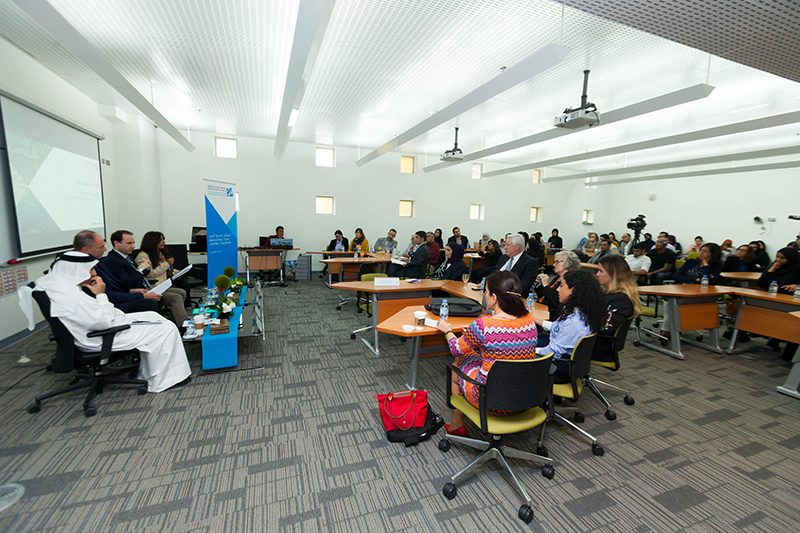
Hamad Bin Khalifa University’s (HBKU) College of Humanities and Social Sciences (CHSS) conducted a panel discussion on Conceptualizing the Middle East, comprised of college professors and distinguished members of the diplomatic community, on Tuesday, February 20. Hosted by HBKU in Education City, HE Willy Kempel, ambassador of the Republic of Austria; HE Ajay Sharma, ambassador of the United Kingdom of Great Britain and Northern Ireland; and HE Dr. Bashir Al-Shirawi, the former ambassador of the State of Qatar to the Republic of South Africa, were in attendance alongside faculty and students. HBKU panelists, including Dr. Steven M. Wright, associate dean and a professor at CHSS, as well as Dr. Reem Meshal, associate professor at CHSS, took part in the dialogue.
In a series of panel conversations that were administered by faculty, the speakers each presented their specialist views on a wide array of topics that touched upon emerging challenges in the region as well as international affairs. Founding Dean of CHSS Dr. Amal Mohammed Al Malki said: “It is a pleasure to bring the academic and diplomatic communities together in an insightful conversation about the Middle East. We have drawn on the expertise of the ambassadors and the research of our faculty members to engage the students as active participants on the discussion about the current situation in the Middle East and its ramifications. By engaging students, we were able to successfully build connections between what is taught in the classroom and what happens in reality, further opening a space for intellectual freedom of speech."
The panel’s areas of discourse included discussions on the roles of women, gender and youth in the Middle East as well as the ideological challenges and future prospects facing the greater region. It also touched upon issues such as extremism and hurdles to coexistence in globalized societies.
In a conversation on the geopolitical climate from a Qatar-centric perspective, the panelists deliberated on how other states, outside the region, may contribute to promoting security and regional order.
This year’s panel discussion comes as the latest in a series of events that HBKU has organized with diplomatic missions across Doha. Through its collaboration with embassies, HBKU actively promotes discourse, critical thinking, and multiculturalism at its campus, as well as fosters a dynamic learning environment for all members of its community.





